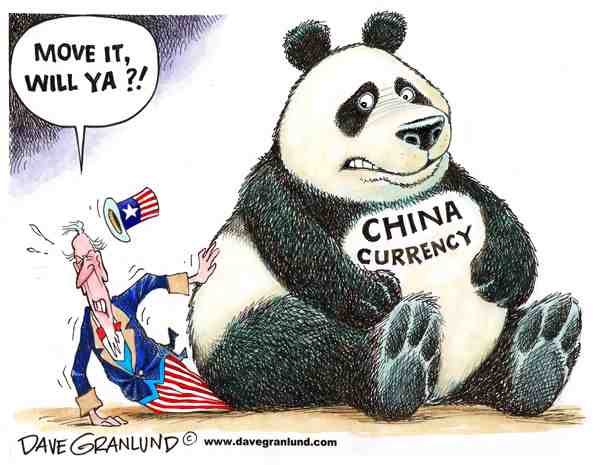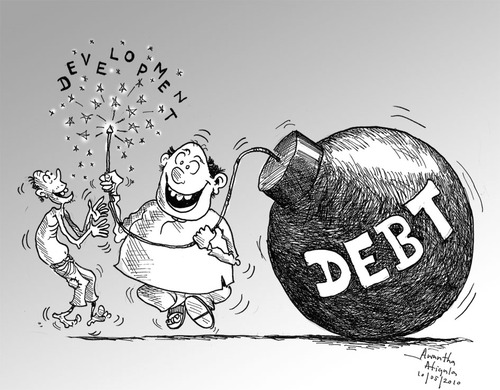"Yeah, those Japanese love their stimulus bills"
I found four back to back articles relating to Japan which argues for and against (mostly the former) the idea that Japan's economic outlook is a "failure". To make things easier, let me go through each of the articles one by one and summarize the sailent points in which the authors are pointing out.
The Myth of Japan's Failure by Eamonn Fingleton
- Author has the opinion that the Japanese Economy has done very well during the so-called lost decades.
- Average Japanese lives longer than Americans.
- The Japanese has one of the fastest internet services in the world.
- The Yen has risen by 87% against the US Dollar and 94% against the British Pound since 1989.
- Japan's account surplus grew more than threefolds since 1989 to USD$ 129 billion.
- Its citizens seems to be living lavishly with the latest cars and spoiled pets.
- America's higher growth rate compared to Japan is an overstatement as American statisticians have been using a hedonic method of adjusting inflation which distorts the actual growth.
- Electricity output per capita is twice that of America.
Japan, Reconsidered by Paul Krugman
- Agrees that there is an overstatement of Japan's decline.
- Current account surpluses are not necessarily a sign of success.
- Proposes that GDP Per Working Age is shrunk during the lost decades.
- Concurs that the data doest not match the picture of relentless decline.
- Believes that America is doing worse than Japan ever did.
The Myth of The Myth of Japan's Failure from Tokyo To The World
- Japan's account surplus is being eroded by the rising yen.
- The Yen's rise is exacerbated by the Dollar & Euro's woes.
- Unemployment figures does not include those who work part time.
- Even if unemployment was lower than america, that might be due to fewer eligible people.
- Japan has the highest Debt to GDP Ratio in the world.
A Reply to Paul Krugman by Eamonn Fingleton
- Argues that GDP Growth is distorted due to Services Sector's contribution to GDP and measurement techniques.
- Differing political agendas; America wants to display strong growth with Japan the other way.
- Argues that the sobriquet "Juggernaut Japan" solidifies the importance of Trade Surpluses.
- Quoted John F. Kennedy's fear of Nuclear War and Trade Deficits.
- How Japanese companies still pioneer high tech industry based on research
Undoubtedly, some very, very good arguments, points and opinions being thrown around. These articles shed a lot of light on my interest as to why Japan has not be performing so well. Some may be disputable, others however, are very interesting. Here are some of the things that I found interesting;
America's overstatement of growth is driven due to statistical measuring techniques.
It has never really occured to me that America could in a way overstate their growth due to differing statistical measuring techniques. I would expect this to come out of my own country but not from America where Transparency is being thrown aloud, which brings me to my second point.
Differing political agendas.
This is undoubtedly try and beneficial to parties who know how to manipulate information being published. America, in all their might, and as the self-proclaimed leader of the world would always want to project an image of a strong economy and stand out against other countries in order to be able to keep the world under its grip. The Japanese however have a different agenda; after being forced to adapt to the Bretton Woods system (which many attributed to their downfall), they would have lesser incentives in showing themselves to be a dynamic and economically influential. Despite still laying low, they are both tempted and sort of being influenced to participate in the latest FTA - the Trans Pacific Partnership.
Unemployment figures does not include those who work part time.
To some extent I would agree to this idea. Normalyl employment figures are based on number of people contributing to national pension funds; which could either be full time or part time workers. Unemployment figures could be manipulated by including figures that would not be taken into account elsewhere; again bringing us to the issue of measurement technique used.
Distortion in GDP's ratio to services and measurement techniques.
I know for a fact that measuring Services Exports itself is a pain; let alone Services Sector's contribution to a country's GDP, measuring techniques used and other variables which can be identified to measure a country's GDP growth. So this would definitely distort the actual figure of a country's overall economic performance.
Throughout the articles, there were a lot of calls on how westerners should actually come and visit Japan itself to see how well they have progressed. But not all of us have the luxury of doing so. So yes, I must say, after reading all the above, my perception towards Japan's performance has undoubtedly changed.
But which side of the fence its on is still a blur.



















